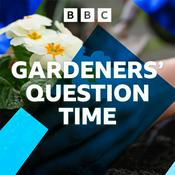23 episodes
- 有同学私信我们说自己因为过年没法回家产生了焦虑,想知道Is It Okay to Not Go Home for the Holidays?
Some holiday seasons often bring intense emotional tension and the pressure to conform to dysfunctional family roles, leading many to feel drained or forced to suppress their authentic selves. Offering a "reprieve" from these stressors and an opportunity to reclaim personal time by building bonds with a "chosen family". Ultimately, choosing not to go home is presented as a sign of emotional maturity and a healthy boundary that allows individuals to prioritize their personal wellbeing and create peaceful new traditions.
感谢收听!祝福大家春节快乐!无论你在哪里都要幸福! - 源哥说:世界上没有真正的感同深受,但是我真心的推荐他可以了解下emotional attunement - 如何做到共情,共情的好处有哪些呢?
Emotional attunement is the essential practice of noticing, empathizing with, and validating the feelings and emotional needs of others, which allows you to approach challenges as a unified team rather than falling into cycles of blame. To effectively practice this, you can first develop critical self-awareness to identify their own internal states. Beyond merely addressing logistics or providing immediate solutions, attunement utilizes tools like open-ended questions to create a healing "glue" that strengthens intimate bonds and can even repair the long-term effects of childhood emotional neglect.
感谢收听本期《Minds Between》,可以在🍠上关注《南半球唠嗑局》进群获得本期的全部文本以及词汇学习资料!咱们下期聊聊跟春节相关的一些有用心理学小知识! - How Small Changes Quietly Change Your Life?What is Compound Effect?
The compound effect is the fundamental principle that small, consistent daily habits and micro-decisions, though seemingly insignificant in the moment, multiply like compound interest to create extraordinary success over time. Achieving these results requires a shift toward 100% personal responsibility and a focus on consistency over intensity, prioritizing long-term value creation over the lure of instant gratification. By leveraging the science of habit loops and building sustainable momentum through tiny 1% daily improvements, individuals can rewire their brains to make high-impact behaviors automatic and life-changing.
感谢收听本期《Minds Between》,记得在🍠上找到《南半球唠嗑局》就可以获得本期的词汇宝典哟! - What Is Secure Attachment and How Does It Impact Your Life?
Secure attachment is a relationship foundation built on trust, emotional safety, and a healthy balance between intimacy and independence. Developing this style enhances personal well-being by improving emotional regulation, self-esteem, and resilience while fostering stable, satisfying connections in both personal and professional life. Although rooted in early childhood experiences, adults can nurture secure attachment through self-awareness, effective communication, mindfulness, and professional support like therapy.
感谢收听本期《Minds Between》,如需要本期词汇宝典请在🍠加群《南半球唠嗑局》!咱们下期再见! - 幸福感真的来自拥有更多吗?
金钱、比较、焦虑,当代年轻人几乎天天面临的问题,我们如何看待这些问题,如何处理金钱和幸福的关系?
We spend so much time chasing happiness — more success, more money, more approval. But what if happiness isn’t something we add to our lives, but something we stop chasing the wrong way?
In this episode, we explore what actually makes us happy — and what quietly takes that away.
感谢收听本期《Minds Between》,祝各位新年快乐,每天都快乐!如需要词汇学习资料,请在🍠联系《南半球唠嗑局》进群,希望2026的你越来越棒!
More Leisure podcasts
Trending Leisure podcasts
About Minds Between
🎧 A podcast exploring emotional intelligence, communication, and self-growth — through insights, and everyday conversations. The show also covers news and pop culture to make learning English more fun and meaningful. Helping you connect deeper, speak kinder, and live wiser.
一档结合心理学与日常对话的播客,探索沟通、情绪与成长的艺术。节目也会涉及新闻、名人、文化话题,让英语学习变得更有趣、更贴近生活。
陪你一起听懂世界,也听懂自己。
Podcast websiteListen to Minds Between, Tales from the Stinky Dragon and many other podcasts from around the world with the radio.net app

Get the free radio.net app
- Stations and podcasts to bookmark
- Stream via Wi-Fi or Bluetooth
- Supports Carplay & Android Auto
- Many other app features
Get the free radio.net app
- Stations and podcasts to bookmark
- Stream via Wi-Fi or Bluetooth
- Supports Carplay & Android Auto
- Many other app features


Minds Between
Scan code,
download the app,
start listening.
download the app,
start listening.




































